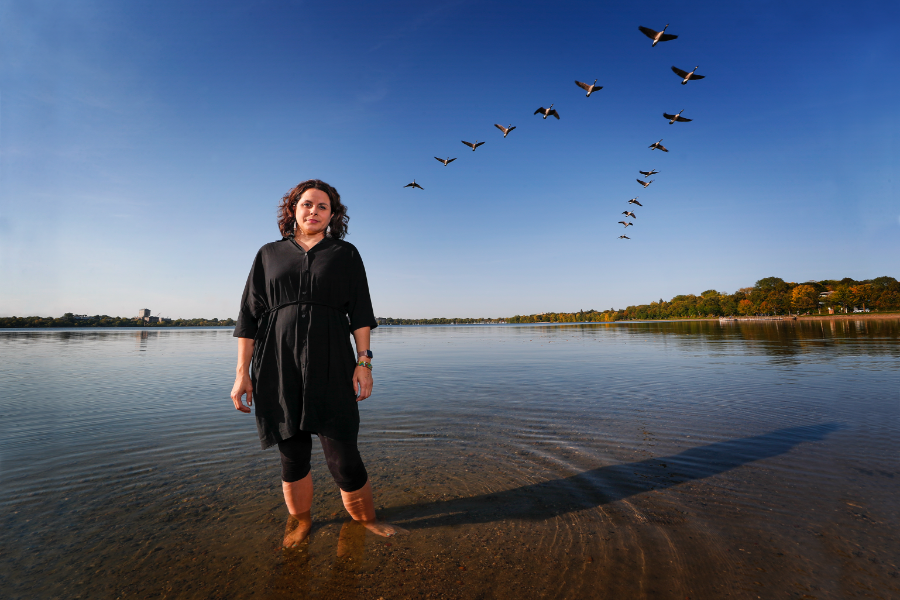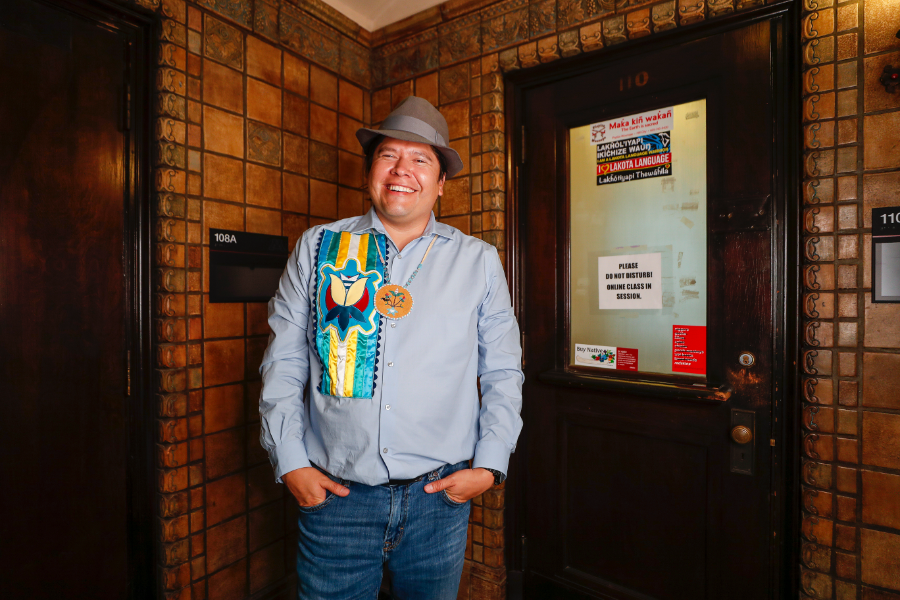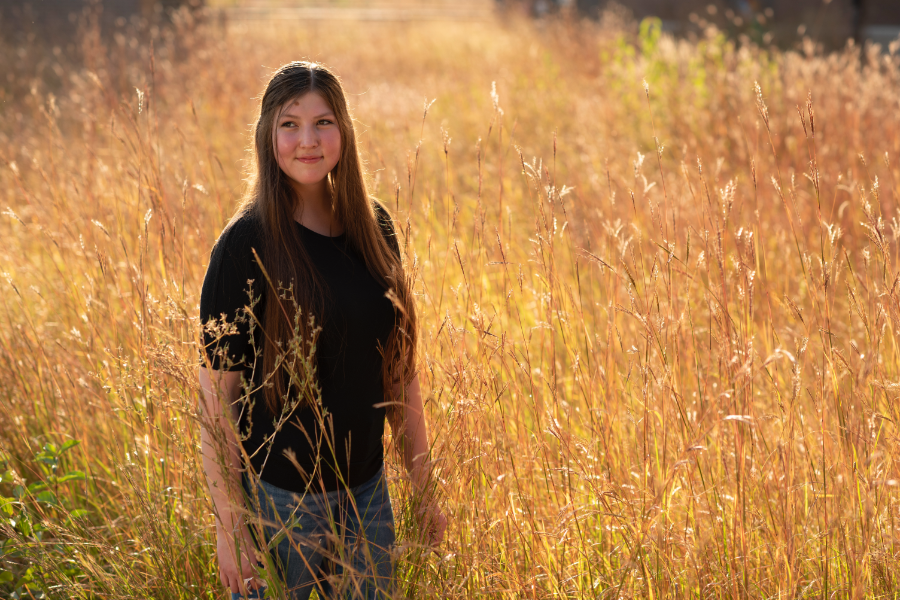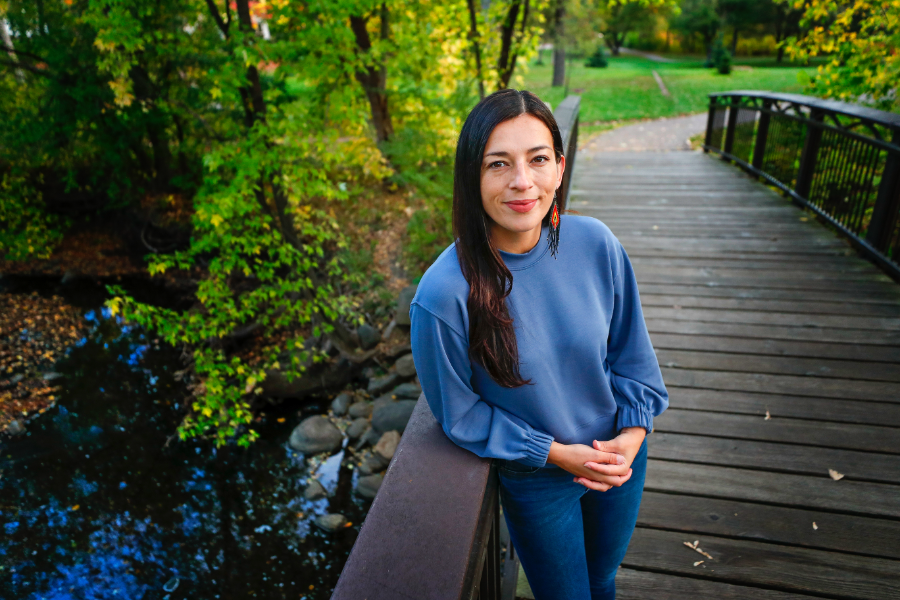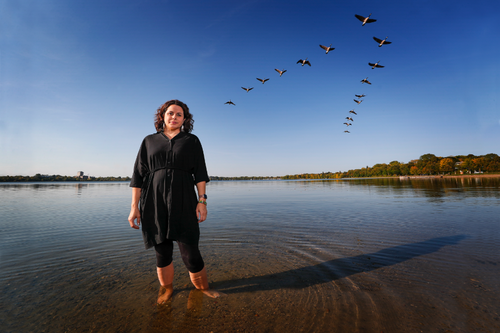Tadd Johnson: Building relationships from the ground up
Since becoming the senior director of American Indian Tribal Nations Relations, Tadd Johnson has opened a meaningful dialogue between the U of M and Minnesota’s tribes.
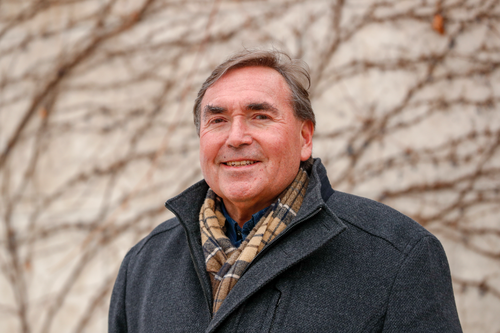
“I do hope I can do the University some good, and my number one priority is to do some good for Indian Country. That’s who I’ve always been working for, no matter what position I’ve held.”
Tadd Johnson spoke those words two years ago, after he was named the first-ever senior director of American Indian Tribal Nations Relations for the University of Minnesota System.
In this role, Johnson has been the primary liaison between the University and regional tribal nations, creating avenues for better communication and understanding, as well as stronger collaborations.
You’d be hard pressed to find someone with better qualifications. Johnson, who earned a law degree from the University of Minnesota, has more than three decades of leadership and service in Indian law and policy. He served as a tribal attorney for more than 20 years, as a tribal court judge and administrator, and for five years with the U.S. House of Representatives—becoming counsel to the Subcommittee on Native American Affairs. In 1997 President Bill Clinton appointed Johnson to chair the National Indian Gaming Commission.
He’s also an enrolled member of the Bois Forte Band of Chippewa, and professor and director of the Master of Tribal Administration and Governance program at the University of Minnesota Duluth.
Johnson receives honor
Johnson was recently recognized with a Lifetime Achievement Award by the Native American Finance Officers Association at its 2021 Fall Finance and Tribal Economies Conference.
Over two interviews, Johnson talked about his initial vision for the position and how, in 2021, relationships are changing for the better.
Q: What’s important for the University in working with American Indian students and staff?
“The recruitment of students, faculty, and staff is essential. It has to be an ongoing process, and retaining students (through organizations like Circle of Indigenous Nations in the Twin Cities and the American Indian Learning Resource Center on the Duluth campus) is absolutely essential. Retaining faculty is also important. We probably have one of the top American Indian Studies departments in the country on [the Twin Cities] campus.”
Q: What are some opportunities at the U of M for working with Minnesota tribal nations?
“We have one of the world’s great schools of public policy in the Humphrey School. They’re very interested in expanding their relationship with American Indian tribal governments, and to me that’s a win-win.
“Also, the Law School has had incredible people here over the years. I think there could be a synergy there between the Law School and the Humphrey School. Likewise, the Carlson School. Upwards of 70 percent of the businesses in rural Minnesota are somehow tied to Indian gaming and Indian tribes, and Indian casinos have become economic engines in rural Minnesota.”
Q: What developments have you seen in the relationships with tribes over the last two years?
“The fact that President Gabel is meeting with the tribes on a regular basis, which hadn’t been done before, is a real step forward. Also the hiring of Karen Diver to advise the president on American Indian policy. There really isn’t anybody better in the country. The last person she was advising was President Obama. So getting her was a big deal, and I was really pushing hard for that.”
Q: What has surprised you about this position and your work so far?
“Actually, I’ve been surprisingly pleased by the attitude of the administration. It’s been an uphill battle but at the same time it’s been an epiphany for them ... to meet with Indian tribes and actually hear what they have to say. What I wanted to do is exactly what I’ve accomplished [so far], which was to create a dialogue between the tribes and the University that never ends.”
- Categories:
- Law and Policy
- American Indian
- Culture and diversity
- Politics
